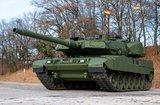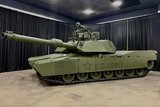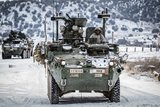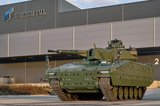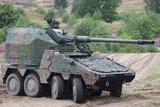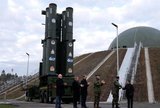Spain to invest billions of dollars on howitzers and other vehicles as it looks to select new tanks
Spain is looking to replace its M109 SPHs. (Photo: Spanish Army)
Spain is looking to spend as much as €3 billion (US$3.5 billion) on SPHs and €19 million for the first stage of replacing its tanks under plans approved for special modernisation programmes as outlined and approved in a Royal Decree.
In April 2025, the Spain launched the Industrial and Technological Plan for Security and Defence in response to the international geopolitical context which included the launch of new Special Modernisation Programmes. These programmes require pre-financing from the Ministry of Industry and Tourism.
The largest of the procurements in the plan is for the purchase of 128 tracked SPH and 86
Already have an account? Log in
Want to keep reading this article?
More from Land Warfare
-
![Rheinmetall KF41 Lynx fighting vehicles set for first taste of combat in Ukraine]()
Rheinmetall KF41 Lynx fighting vehicles set for first taste of combat in Ukraine
A June 2024 agreement with Ukraine for Rheinmetall to provide 10 KF41s along with the establishment of a manufacturing facility in the country has moved a step closer, with the factory now built and a contract signed.
-
![First gun barrels for British Army howitzers due from Rheinmetall’s new UK factory in 2027]()
First gun barrels for British Army howitzers due from Rheinmetall’s new UK factory in 2027
The new Rheinmetall facility will supply barrels for UK RCH 155 howitzers and Challenger 3 tanks while also opening up potential export opportunities, providing a currently absent national capability.
-
![Germany increases Arrow missile defence deal to $6.1 billion as American interest grows]()
Germany increases Arrow missile defence deal to $6.1 billion as American interest grows
Germany’s move to buy Israel Aerospace Industries’ Arrow missile defence system became public in mid-2023 with approval from the US government shortly after. The first operational system is expected to be in service before 2030.









